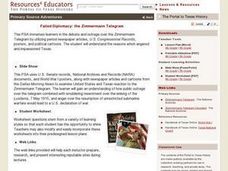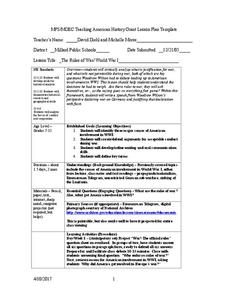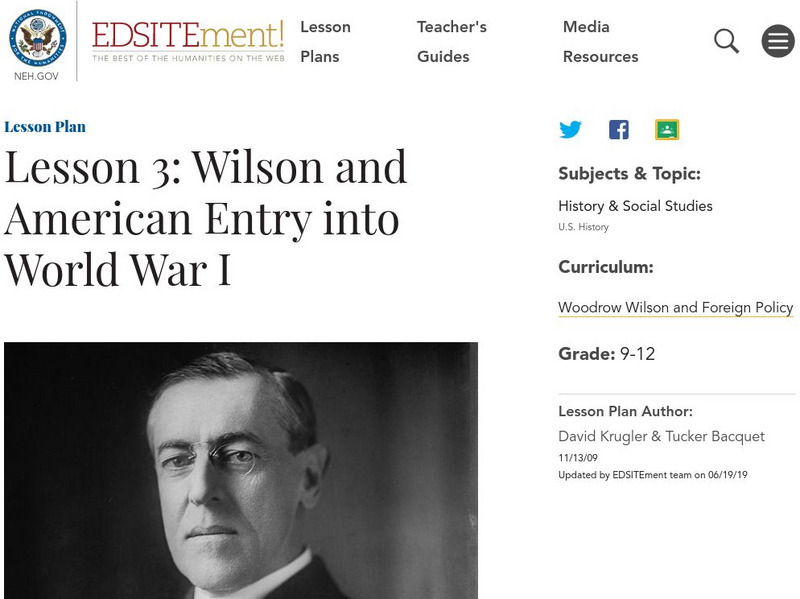Curated OER
The Zimmermann Telegram
Students decode a fictitious message and write messages using the code. Students are shown the significance of the creation of the Zimmermann telegram to aid in communication and how it altered history.
Curated OER
Failed Diplomacy: The Zimmerman Telegram
Seventh graders continue their examination of World War I. In groups, they read a copy of the famous Zimmerman telegram and discuss its effect on Americans. To end the lesson, they discuss how public opinion changed after it became...
Curated OER
The Rules of War/World War I
Students explore the reasons the United States became involved in World War I. In this World History lesson, students research the reasons Woodrow Wilson made the decisions he did, prepare a debate and write a paper.
National History Day
Why Did the United States Enter World War I in 1917?
World War I was the first major conflict on a global scale. Using primary documents, learners determine why the United States chose to enter World War I when it did. After analytical writing and group research, the causes of America's...
US National Archives
Nara: Teaching With Documents: The Zimmerman Telegram
This is an excellent resource for anyone intersted in the Zimmermann Telegram: click to see the original coded message, the decoded message, and read about the implications of the telegram. This National Archives and Records...
National Endowment for the Humanities
Neh: Edsit Ement: Woodrow Wilson and American Entry Into Ww I
This lesson plan explores the ways President Woodrow Wilson tried to keep America out of war as World War I raged in Europe. Examine documents, speeches, and other primary sources to follow America's path from neutrality to war.





